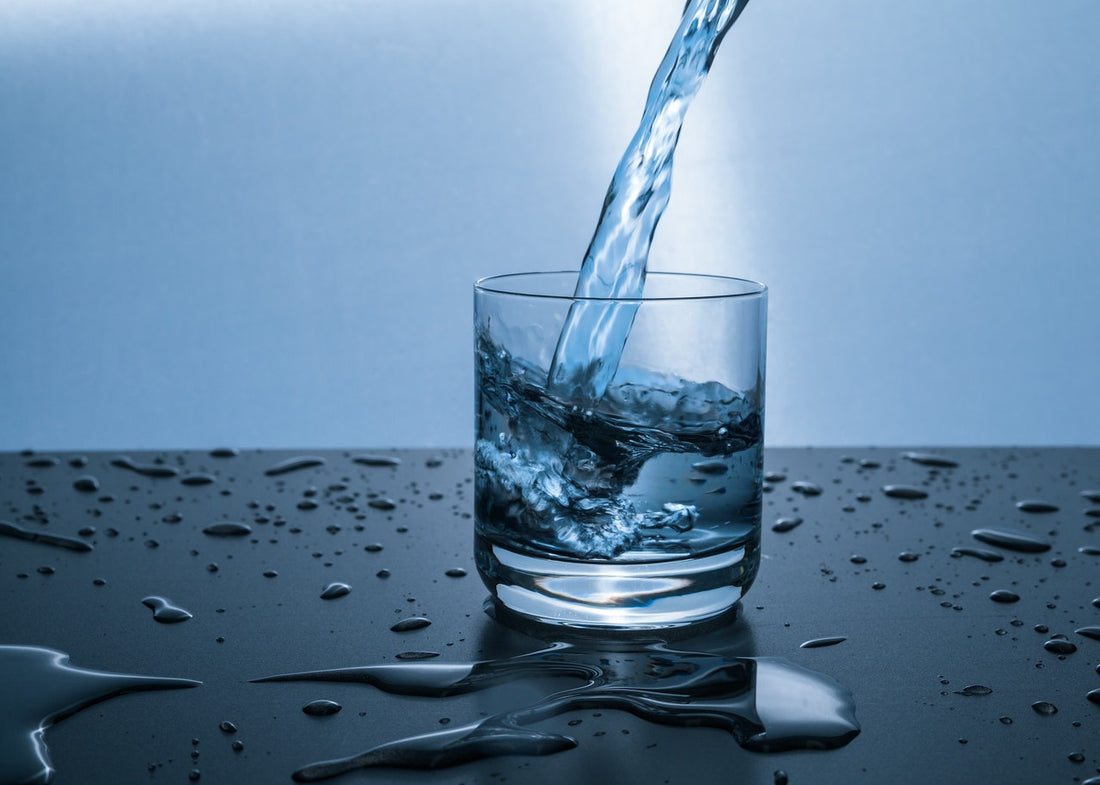At FilterSmart, many of our clients share a common problem.
They have hard water in their home. Their hair and bodies feel dry after a shower. Their dishes come out of the dishwasher milky white, their clothes are dingy after a few washes, and their faucets all seem to have impossible-to-remove calcium deposits.
Now, clients often approach us because they want to know what affordable solutions exist to remedy this issue.
And the answer is a water softener. The next question they ask is whether drinking softened water is healthy.
So, if that’s something you’d like to know too, read on as we explain what a water softener is, what the benefits of installing one are, and whether or not it is safe to drink softened water.
What Is A Water Softener?
A water softener is a system designed to significantly reduce the amount of calcium and magnesium in your water using a process called ion exchange. A high level of these minerals causes what is called hard water. Now, having hard water is bad news because calcium and magnesium tend to deposit in pipes, water fixtures, and water appliances, reducing their efficiency and lifespan.
What’s more, because hard water prevents your appliances from working properly, it means you need to use more cleaning products to wash clothes, dishes and even your body and hair. Not only is this bad for the environment, but it also quickly adds up, increasing your grocery bill.
How Do Water Softeners Work?
Water softeners usually have two components: a salt tank and a resin tank.
As the name suggests, the resin tank contains resin beads coated with sodium. When the water comes from your home’s main line and flows through the resin bed in the tank, the magnesium and calcium get trapped in these beads, leaving clean water (free from hardness-causing particles) for your home.
The other tank contains salt brine used to clean the resin bed during the ‘’backwash’’ process. This process flushes out all the minerals trapped in the resin beads so that your water softener keeps functioning efficiently over time.
What Are The Benefits Of A Water Softener?
By removing the dissolved magnesium, calcium, and other hardness causing particles, a water softener will help:
- Leave your skin soft and your hair silky
- Prolong the efficiency and lifespan of your appliances
- Protect your clothes
- Remove unwanted tastes from your water
- Save you money on cleaning products
- Save you money on shampoo and conditioner
- Significantly reduce lime deposit buildup and scaling on water fixtures, and plumbing
Yet, because water softeners use salt to soften the water, many people are worried about the consequences on their health.
Can You Drink Water From A Water Softener?
Sure, softened water contains more sodium than usual. But according to numerous studies, including one from the Mayo Clinic, the levels of sodium present in softened water are too low to have a negative impact on your health. In fact, according to this same study, most water systems contain less than 50 milligrams of sodium per liter.
But what does that mean exactly?
Well, to ingest as much sodium as you do with a slice of bread, you’d need to drink three liters of your softened water. So, unless you’re on a low-sodium diet for medical reasons, softened water is perfectly fine to drink for you and your family.
However, if you’re still concerned about the sodium levels in your water, you can also install a salt-free water softener or a high-quality water filter. Indeed, a water filter will remove the sodium and other compounds that can be found in your water. And if that’s something of interest to you, note that reverse osmosis systems are the best types of filters as they remove 99% of contaminants and unwanted substances from your water.
Not Sure What The Best Solution Is For You?
Why not give us a call?
At FilterSmart, we’re passionate about helping our customers access clean and pure water in their own homes. That’s why we manufacture high-quality salt-free water softeners and filters in the USA. Our products are all made and assembled in the USA and are designed to provide high-quality water from the tap. Whether you’re after a reverse osmosis water filter, a UV water filter, or a water softener, we’ve got something in store for you!
And if you’re looking for more tips and tricks about water filters and water softeners, hop on our blog section!
Here are some of our latest blog posts:
Reverse osmosis and ion exchange, what’s the difference?






